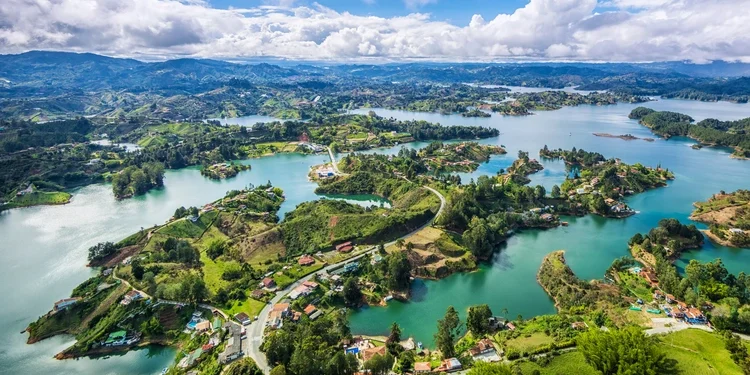The existence of so many independent “nation states” across the world… “countries” the way we think of them today… is a relatively new phenomenon in history.
The idea that every ethnic or social group should have its own independent national government and geographical homeland… this idea has been very successful in the last century. But it wasn’t always this way.
Before the last hundred years or so—and in some cases a lot more recently—much more of the earth belonged to empires, “superstates” controlling territories sometimes very far from where those territories were governed…
Think of the British Empire. At one point it governed a quarter of the earth’s territory and a quarter of its population—from the tip of Africa to Australia, to India, to the Middle East, to Canada.
Or the Austro-Hungarian Empire, which before World War 1 encompassed not only Austria and Hungary but parts of the Balkans, the Czech Republic, Slovakia, Poland, Romania, and Ukraine.
Or the Soviet Union… whose collapse led to the creation of a host of new independent states in Europe.
Historian Niall Ferguson points out in his book Empire that before the First World War, there were just 59 independent countries in the world. By 1995 there were 192. Today there are 193 members of the United Nations.
Ferguson is unsure whether this is a good thing: “Many of the new states are tiny… There are two disadvantages to this political fragmentation.
“Small countries are often formed as a result of civil war within an earlier multi-ethnic polity… That in itself is economically disruptive.
“In addition, they can be economically inefficient even in peacetime, too small to justify all the paraphernalia of statehood they insist on decking themselves out in: border posts, bureaucracies and the rest.”
Start Your New Life Today, Overseas
Bad For Geopolitics… Good For Expats
For the expat or globally mobile citizen, however, the existence of so many countries—so many options for a backup residency or building a new life—can be a very good thing.
Benedict Anderson, another historian, described nations as “imagined communities.”
Borders are usually imaginary, in a sense—made up by men drawing on maps, not natural geography. Anderson meant something else.
Unlike in the days when we were all part of some tribe, today, we can’t know everybody who makes up the community of our nation.
So, we “imagine” we have something in common with the people two villages away, and that all the villages and towns and cities within our borders make up one homogenous community… somehow different from the one across the imaginary borders we drew…
But different laws in different countries… different approaches to taxation, to national debt, to entrepreneurship… different approaches to dealing with crisis… these things are not imaginary.
Smaller states have to create outsize incentives in order to attract international capital. That can be a big benefit. Think of Ireland and its longtime 12.5% corporate tax rate.
At the same time, in the churn of history, smaller states… particularly those with much larger neighbors… can get gobbled up.
They may struggle to defend themselves from invasion. Look at what’s happening right now in Ukraine.
Or, they may simply lack the numbers of people and the institutions necessary to mobilize effectively in a crisis.
Yet, larger countries are by no means always better placed to deal with crisis…
Indeed, a federal government that operates very far from facts-on-the-ground can mean a delayed response to natural disasters… not to mention a myriad of other problems.
Start Your New Life Today, Overseas
It’s Nice To Have Options
So, we come back to my main point: It’s good to have options.
You do not have to live in a country that does not meet your expectations. You have choices.
At Simon Letter, we’re all about giving our readers options.
My Simon Letter team and I have just completed an extensive round-the-world study that ranks and rates the best and worst countries to see out a global crisis…
With so many options out there… you need the best advice.
The Simon Letter Global Survival Index is something unique… something we’ve never done before.
Live And Invest Overseas readers are used to us recommending the best countries for retirement abroad or the best offshore jurisdictions for banking or business…
But this Index asks an even bigger question: Which countries will survive the coming storms?
Large or small, every country faces a particular set of circumstances and particular challenges…
As a global citizen, you have a lot of choices before you when it comes to where you would like to live… and where is the best place to escape to in a crisis.
Most importantly—this Index tells you how easy or difficult it is to move to your chosen haven overseas.
Because there’s no point knowing that a country is safe… if you can’t actually get there when you need to.
How do the countries on our regular Simon Letter beat hold up, not as retirement or offshoring destinations… but as boltholes in an emergency?
Where should you go when the world is falling apart?
We’ve answered that question for you… in The Simon Letter Global Survival Index 2024.
Stay diversified,
Lief Simon
Editor, Simon Letter










